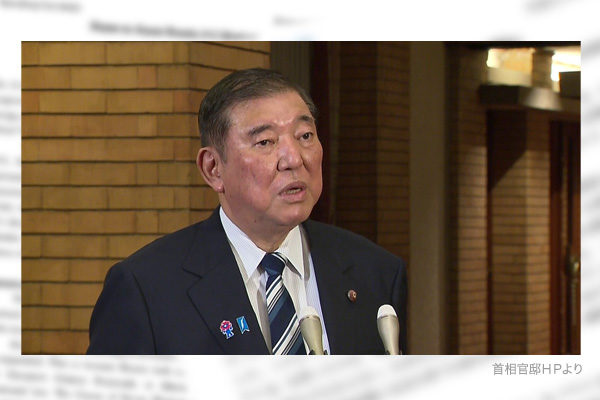It’s hard to believe that four former defense ministers attended the meeting that ended up being abominable. I am talking about a meeting of Japan’s National Security Council held on June 13. Regarding Israel’s attack on Iran’s nuclear facilities and other targets, Prime Minister Shigeru Ishiba instructed the relevant cabinet ministers to (1) collect information, (2) take all necessary measures to ensure the safety of Japanese nationals in the region, and (3) cooperate with relevant countries to de-escalate the situation and resolve the Iran nuclear issue.
The instructions covered nothing more than what the relevant ministers should do as a matter of course even without instruction from the prime minister who convened the meeting. They also lacked any message to the public. Ishiba should have instructed the ministers to prepare measures in the event that Iran implements a blockade of the Strait of Hormuz and conveyed to the public the recognition that this situation would not be limited to affecting only the Middle East.
Power vacuum in the western Pacific
Participants in the NSC meeting included Chief Cabinet Secretary Yoshimasa Hayashi, Foreign Minister Takeshi Iwaya, and Defense Minister Gen Nakatani, as well as Prime Minister Ishiba. All four have served as defense ministers and are known as well-versed in national security issues within the ruling Liberal Democratic Party. They should be well aware that the escalation of attacks between Israel and Iran could cause a chain of reactions, including not only the blockade of the Strait of Hormuz but also the United States’ diversion of troops from the Asia Pacific to the Middle East.
Coincidentally, in early June, the Chinese Navy conducted its first coordinated exercise in the western Pacific involving two aircraft carriers, the Liaoning and Shandong. In the course of the exercise, a Chinese J-15 fighter jet tailed a Japan Maritime Self-Defense Force P-3C patrol aircraft flying over the Pacific Ocean for surveillance, making a dangerous flight approaching as close as 45 meters to the P-3C. Tensions are rising as Chief Cabinet Secretary Hayashi expressed grave concern, saying “such an unusual approach by a Chinese military aircraft could cause an accidental collision.”
Some Japanese government officials say the inauguration of the second Trump administration in the United States has created a power vacuum in the western Pacific, encouraging Chinese military to fill the vacuum. At the NSC meeting, the prime minister should have instructed the Self-Defense Forces to increase their vigilance in order to prevent Chinese military from taking further provocative actions. Is it okay to try to resolve matters with China always in a conciliatory manner?
Empty condemnation of Israel
After the NSC meeting, Ishiba said of the Israeli attack: “It is completely unacceptable that military means were used while diplomatic efforts for a peaceful solution were ongoing. I strongly condemn the extremely regrettable action.” Israel, which has a strong determination to never allow Iran to possess nuclear weapons, may not want to be lectured by Japan that has failed to prevent North Korea from acquiring nuclear weapons.
Ishiba has characterized the Trump administration’s tariff policy as a national crisis. However, the real national crisis lies in the potential blockade of the Strait of Hormuz, through which 80% of Japan’s crude oil imports passes, and in China’s military actions. It is a mistake to see the impact of the Israeli attack as confined to the Middle East.
Takashi Arimoto is a Planning Committee member at the Japan Institute for National Fundamentals and a columnist at the Sankei Shimbun newspaper.


